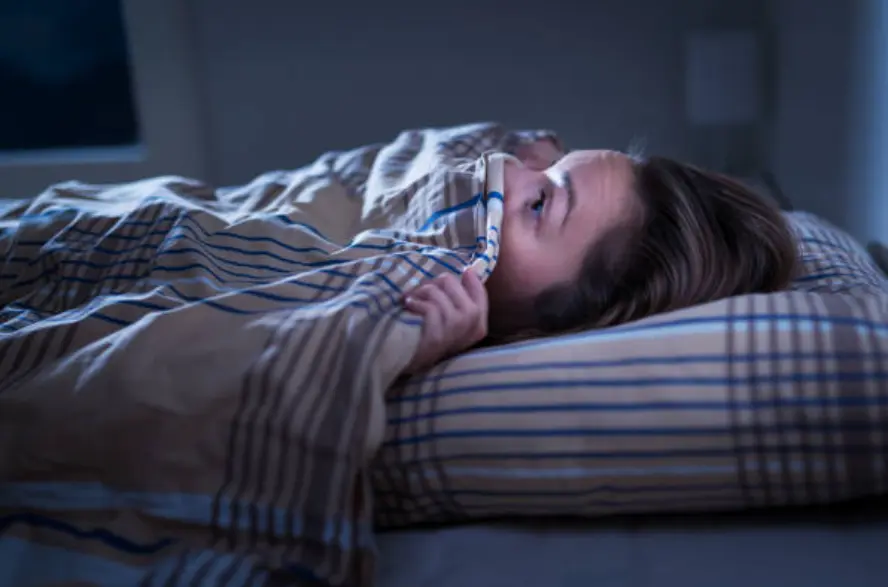How To Stop Being Scared Of Noises At Night
Get Therapy For Anxiety & OCD in baltimore, Maryland & Online
At Behavioral Health Direct we provide expert CBT therapy to help individuals reduce anxiety and obsessive compulsive (OCD) symptoms and learn to lead productive and meaningful lives.
Contact us now and get an in person or teletherapy appointment within a week.
Anxiety and worry come in many shapes and forms. At night we feel vulnerable and our imagination can become very active. And it’s not just children, adults worry too. Have you ever lay awake at night waiting to fall asleep and heard all sorts of strange sounds and noises? Does your mind come up with all kinds of explanations ranging from someone breaking in to the supernatural? If so, you may have wondered how to stop being scared of noises at night.
At a recent social event, a friend approached me and asked me what I would tell someone who’s suffering from trauma and getting scared of noises at night. This article is a result of our conversation.
It’s Anxiety, Not Trauma
First, it’s important to recognize that being scared of noises at night is anxiety, not trauma. Using the right language is essential because it will help to understand what is going on and the best ways to address it. Additionally, past trauma doesn’t need to be relevant to address anxiety. Many individuals will feel anxious without having experienced significant trauma. Furthermore, every human being has had difficult and unpleasant experiences. Knowing the root cause or the why of our anxiety is less important than knowing how to address it now.
Why do I become more anxious of noises at night?
The reason people become more afraid at night is likely related to why people feel afraid in general. Ultimately, anxiety is the fear of the unknown. We humans do our best to predict and control our surroundings, and we are often very successful at doing so. Think of the many tools we have created to regulate our comfort and take care of our needs. Usually, this enhances the quality of our lives. However, life is filled with uncertainty. It is often the very act of trying to be sure, and know the unknowable, that creates an ongoing feeling of anxiety. It’s possible that we feel less secure at night because it’s harder and more difficult to know and predict our safety. Our vision is reduced and help may be limited since everyone is asleep!
Don’t Go Check
Hearing noises at night can make people feel anxious and naturally create the urge to get out of bed and go find the source of the noise. Unfortunately, checking is usually the worst thing a person can do when experiencing anxiety. There are times where a healthy sense of self-preservation is helpful. But it’s also important to learn to live with a certain amount of uncertainty and to take acceptable risks. Getting out of bed might help you feel less anxious, but it’s likely going to make you feel more anxious the next time you hear a noise, and feel more urgent to go check. This will lead to continued sleepless nights. Additionally, checking is sending a message to your brain that this concern or worry is very serious and needs to be resolved. Checking may relieve some anxiety now, but you are also telling yourself that you need to take your anxious thoughts very seriously, which will make you feel more anxious and worried.
Cognitive Strategies For Anxiety
Another helpful way to stop being scared of noises at night is to use cognitive or thinking strategies to evaluate the danger. How likely is it that you’re actually in danger? Would your friends and family agree with your evaluation? If not, what’s wrong with them? How bad is it to feel anxious, what might happen to you, how certain are you? These types of tools are often used in therapy as part of a cognitive behavioral approach (CBT) to treat anxiety and OCD and can help you stop being scared of noises at night. There’s a trap though, which I’ll discuss in the next section.
Assurance Versus Re-Assurance
Thinking strategies can be helpful but there is something to look out for. Evaluating, rationalizing, and thinking, can turn into a type of checking. When used this way, cognitive strategies may actually feed the anxiety. For example, if I hear a scary noise at night and I don’t get out of bed to check but I quickly review all the reasons I’m not in danger, I’m relying on the reassurance to quiet my anxiety. This is more subtle than checking, but is just as important. My brain is still getting the message that the sound I heard, and the thought that followed, and the anxiety that came next are serious and demand my immediate attention. This can be a little tricky to recognize at first. One helpful way that I found to communicate this to my clients is to discuss the difference between assurance and reassurance. Assurance is a one-time understanding and enhances one’s knowledge. This can be helpful in properly evaluating risks and threats which lead to increased anxiety. Reassurance on the other hand, is the process of repeating already known information for the purpose of reducing anxiety. However, this often serves to increase anxiety.
I hope you found this article helpful and can use some of these ideas to stop being scared of noises at night. At Behavioral Health Direct we provide evidence-based anxiety therapy in Baltimore, Maryland & online.
We are currently accepting new patients. If you are interested in therapy please contact us or call 443-296-2584 to request a consultation.
ready to get started with Therapy?
Book a free consultation, schedule an appointment, or contact us for more information. We look forward to hearing from you and will be in touch shortly.
